Eclipse Economy: $818M+ Spending Surge Expected Across US on April 8th

The Power of Data: AI Predicts a Stellar Economic Boom of $818M+
On April 8th, 2024, a celestial marvel unlike any other will grace the skies of North America: a total solar eclipse. Beyond the awe-inspiring darkness descending in the middle of the day, the event is set to trigger a tourism and spending frenzy across 12 US states.
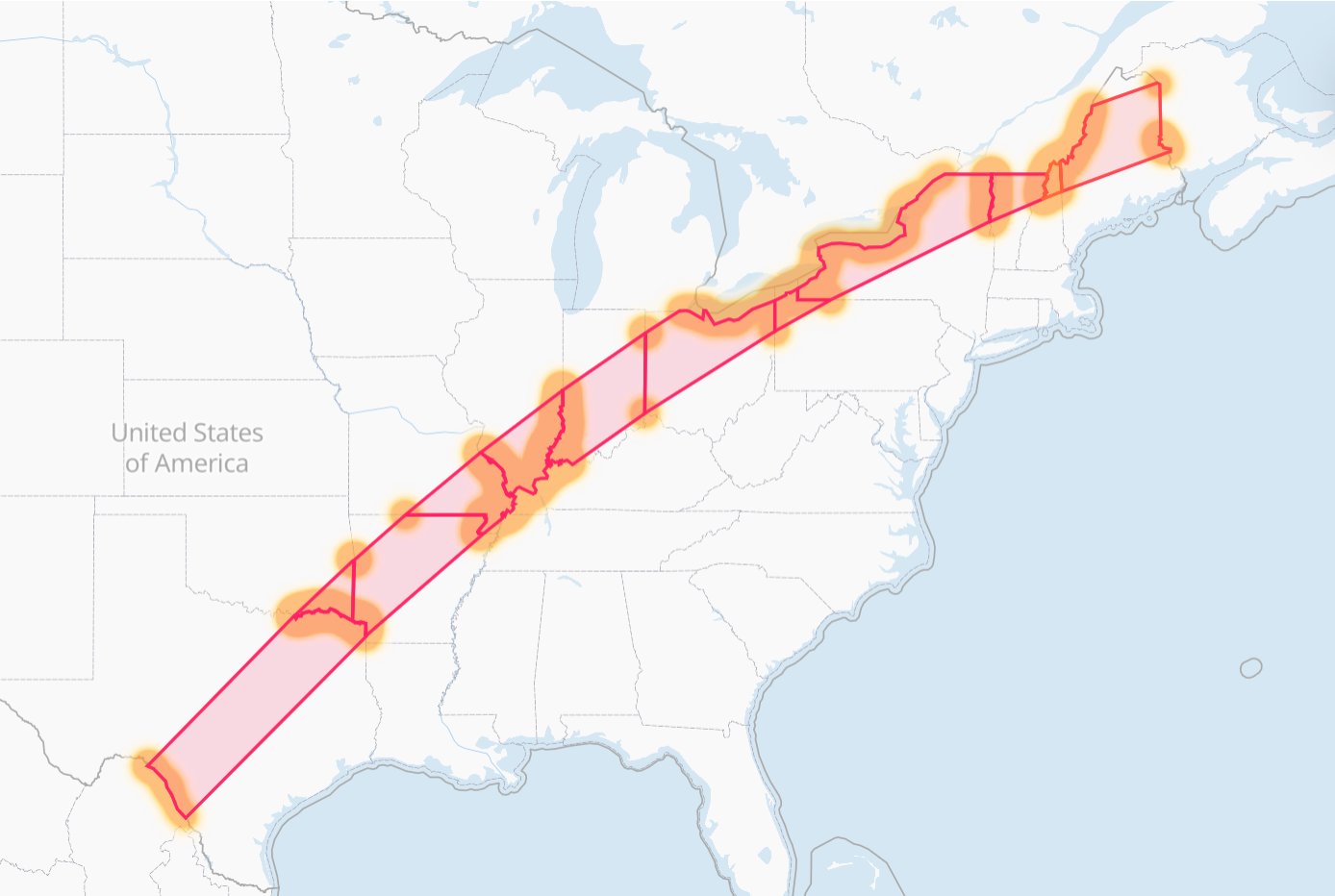
Our data predicts a combined $818,187,316 to be injected into the local economies of these states as a result of the eclipse. That's right – on April 8, stargazers and eclipse chasers will be spending hundreds of millions on hotels, restaurants, and transportation across these 12 states:
Accommodation: Hotels and vacation rentals are expected to rake in a massive $660M+ due to stargazers eager to secure prime viewing locations.
Restaurants: Foodies and eclipse enthusiasts alike will contribute an estimated $123M+ to the culinary scene combined across the impacted states.
Transportation: Travelers seeking the perfect eclipse-viewing spot will generate an combined $33M+ for ground-based transportation such as taxis and rideshares.
Hotels, restaurants, and transportation providers can leverage this event-driven demand to maximize their profits. Make the most of this astronomical event by taking strategic actions such as offering special eclipse-themed packages, targeted marketing campaigns, and optimized online booking systems in advance.
Eclipse Mania: Where to Find the Biggest Spending Booms
Here’s the list of impacted states listed by how much consumer spending is predicted to be spent within the state as a result of the eclipse that day:
Texas: $267.8M+
Indiana: $118.2M+
Ohio: $86.7M+
New York: $83.2M+
Arkansas: $63.2M+
Illinois: $61M+
Pennsylvania: $45.5M+
Vermont: $36.2M+
Missouri: $35.2M+
Oklahoma: $15.9M+
Maine: $4.4M+
New Hampshire: $379,446
To gain a deeper understanding of the economic impact, let's explore which states will benefit most from this eclipse. We’ll also identify the specific regions within these states that will see the greatest surge in spending using Polygons, which accurately identify the geographic area impacted by events that do not happen at a single pinpoint location on a map:
Texas Takes the Top Spot: The Lone Star State is predicted to be the biggest winner, with a whopping $267.9M+ in event-driven spending expected. This translates to over 1 million eclipse enthusiasts flooding Texas, ready to witness the celestial show and boost the local economy.
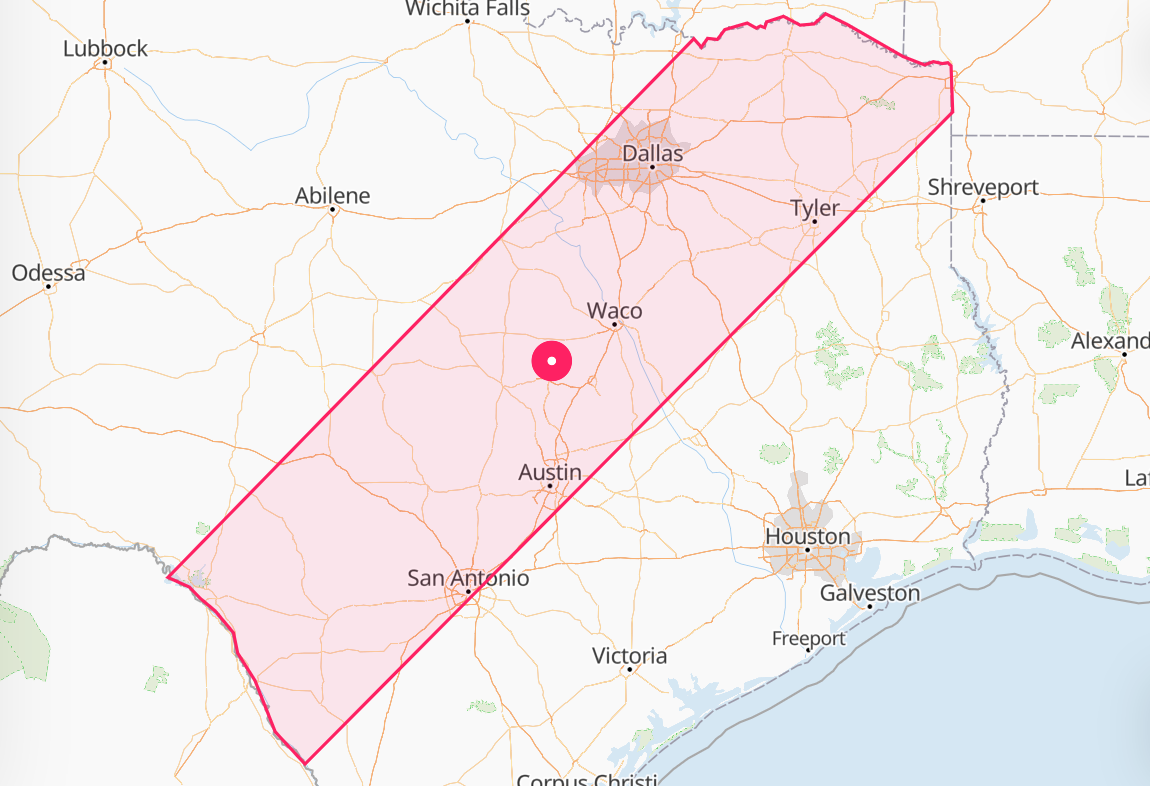
A Stellar Showing for the Midwest: Indiana and Ohio are both predicted to see attendee numbers exceeding half a million, with Indiana expecting over $100M+ in spending as a result.
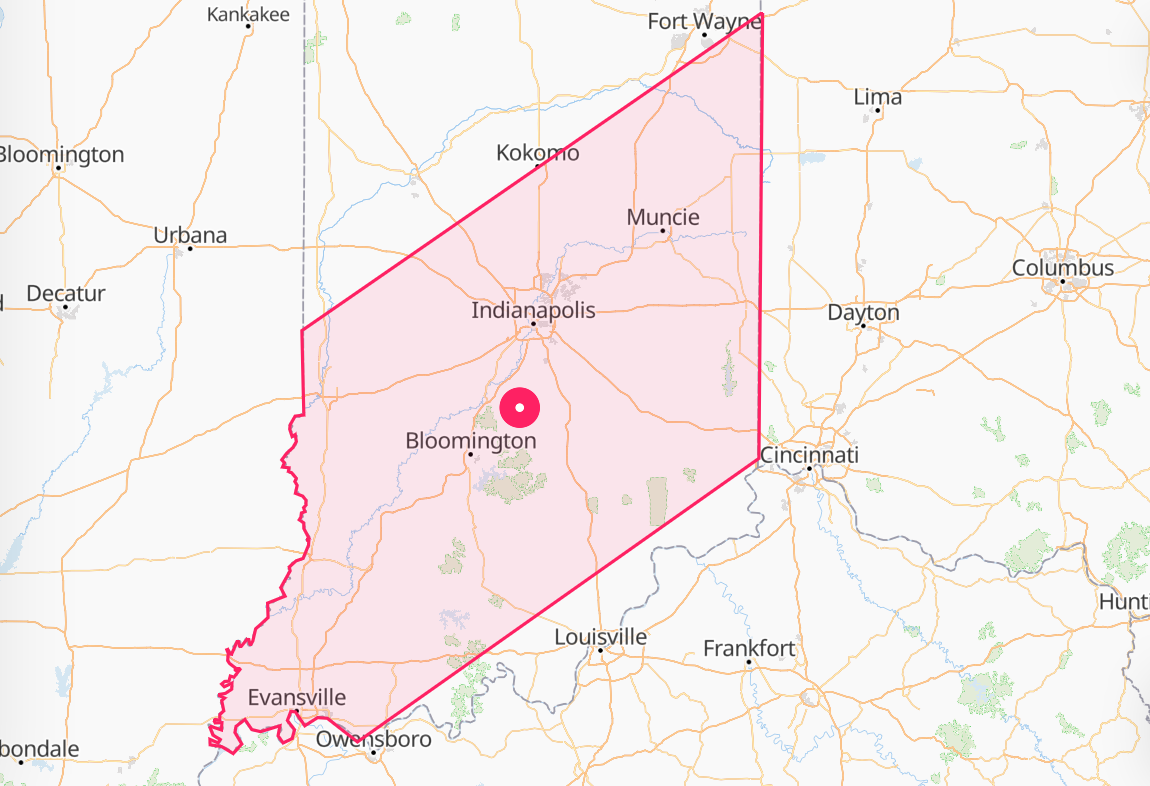
East Coast Excitement: The eclipse fever isn't just a Midwestern phenomenon. New York is projected to draw in nearly 400,000 visitors who will generate an estimated $83M+ in spending.
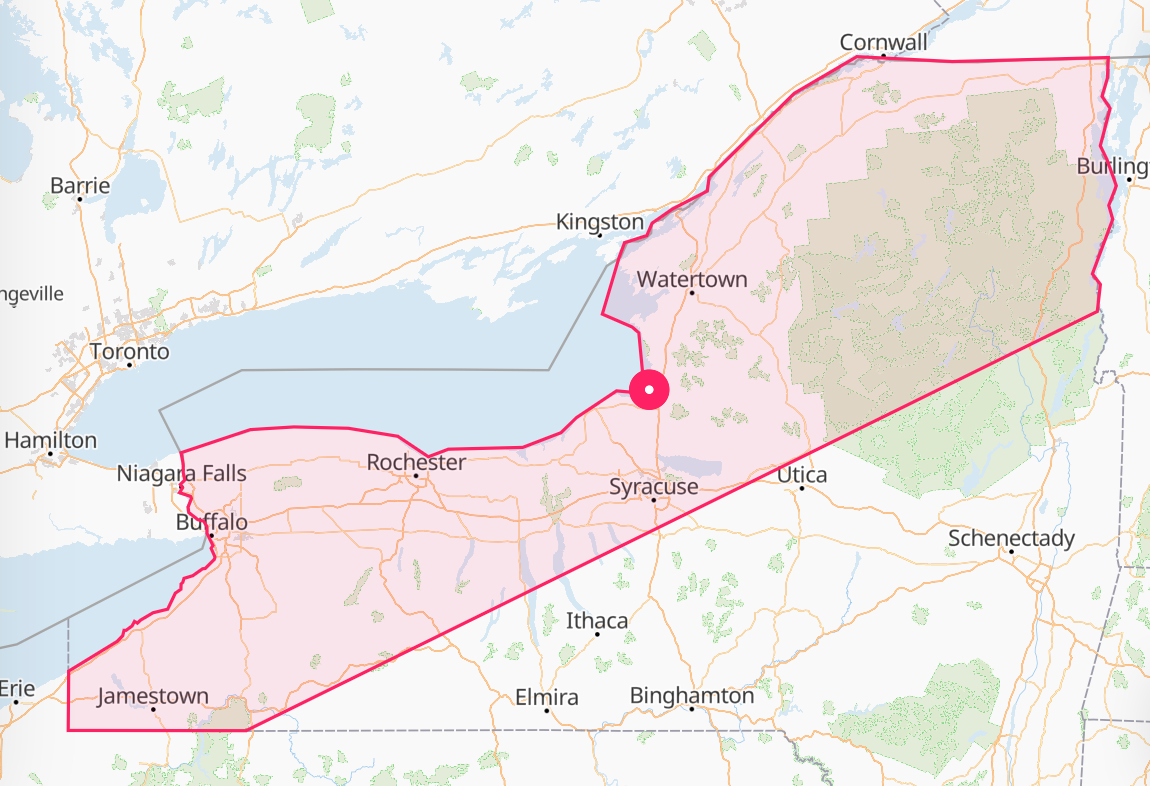
The economic impact isn't limited to just these big players. On April 8, even states with a smaller predicted attendance, like Vermont and Missouri, are poised to see a significant boost in tourism revenue, with local consumer spending exceeding $35 million each that day.
See Beyond the Horizon with Predictive Demand Intelligence
Get ready to witness a celestial spectacle that will leave the event economy booming! The Great North American Eclipse is more than just a natural phenomenon, it's an example of how events, fuel and impact local economies. With millions of dollars predicted to be spent on travel, accommodation, and dining across the US, this eclipse promises to be a truly unforgettable experience for both stargazers and businesses alike.
The Great North American Eclipse is just one example of demand-driving events – there are events every day driving millions across the country. Predictive demand intelligence empowers businesses of all sizes to capitalize on 19 categories of events, from concerts and conferences to sporting events, festivals, and more.
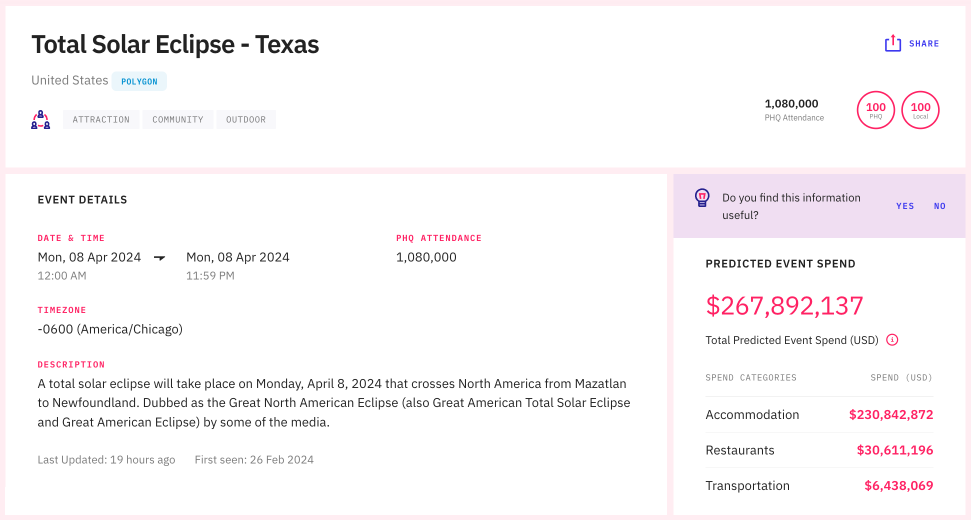
Join the ranks of industry leaders such as large hotel brands, Instacart, and Uber using intelligent event data to master predictability and take control of demand volatility. Get started for free today to start predicting the impact of local events, empowering smarter decisions and more agile operations.






